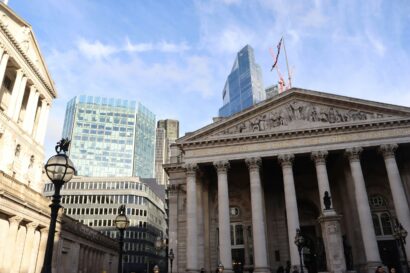AG INSIGHT | 17/10/2017
Why climate change is on the minds of big investors

Meryam Omi, Head of Sustainability and Responsible Investment Strategy at Legal & General Investment Management, discusses the importance of climate risk disclosure.
Floods, heatwaves, rising seas and displaced populations – climate change has many grim faces. Yet underneath it all lie just two numbers: how much carbon dioxide the world can put into the air, and in how many years. Miss these targets and we’ll find ourselves in dangerous, uncharted territory.
To be sure, there are encouraging signs of action – notably the Paris Agreement, where 195 nations committed to keep the global average temperature to ‘well below 2°C’ of warming (compared to the times when society wasn’t running on polluting coal, oil & gas). We now know this is possible: economic growth and carbon reductions can go together. But we also know our current policies are nowhere near as ambitious to meet our targets.
This is where investors come in. Yes, government policies and regulations provide a framework, but are investors playing their part in financing the future we want and need? Some areas have seen spectacular progress: the green bond market has grown almost 100 times in the last 10 years. But other areas are lagging behind: analysts from the Bank of England have shown that around a third of the world’s stock markets and credit markets are linked to carbon-intensive sectors for which there is little, if any, room in a 2°C world. One big obstacle here is insufficient information: in 2015, the same year the Paris Agreement was adopted, just 25% of companies put any metrics in their sustainability disclosures – how, then, are investors to distinguish between climate leaders and laggards? If your house catches fire, throwing a glass of water and grabbing the fire extinguisher are both ways of doing something, but not necessarily of doing enough – which is why investors need consistent, comparable and measurable data from companies, not just boilerplate statements about ‘playing our part’.
To address this issue, the G20’s Financial Stability Board has established clear guidelines for how companies should disclose the climate risks they face. These range from physical risks (e.g. insurers facing increased weather-related property losses), to transition risks (e.g. coal utilities exposed to clampdowns on air pollution and competition from renewable energy), and liability risks (e.g. companies being sued for contributing to harmful climate change, similar to the lawsuits against asbestos manufacturers). In just a few months, businesses worth over $2 trillion have pledged to adopt these recommendations in their reporting. The guidelines have also received the endorsement of the UK government, which has gone further to establish a Taskforce of industry leaders to ‘accelerate the growth of green finance, and help us deliver the investment required to meet the UK’s carbon reduction targets’. Undoubtedly, there is tremendous potential in this area. For example, a single fund can achieve the equivalent of taking 20,000 cars of the road every year by reducing its exposure to high-carbon investments!
This is a trend that is rapidly changing the face of mainstream investing. As climate disclosures improve and become the norm, investors will understand which companies are contributing to a low-carbon future and which are dragging their feet, thus being able to ‘back their convictions with capital’ (as Mark Carney put it). An early example of this is LGIM’s Climate Impact Pledge, which ranks its investee companies according to their alignment (or misalignment) with global climate targets. If the worst offenders do not improve, LGIM could divest of their stocks, and/or vote against the re-election of their chairman, thus placing climate change on the boardroom agenda. This call for increased transparency benefits all shareholders, who will be able to better understand – and question – management’s use of their money. Case in point, a record number of ExxonMobil shareholders voted this year asking for more information on how the company is preparing for a world of increasing climate policy ambition and decreasing oil demand.
The climate is changing, and so is the investor mindset. Companies – take notice!
Meryam Omi is Head of Sustainability and Responsible Investment Strategy, Legal & General Investment Management



